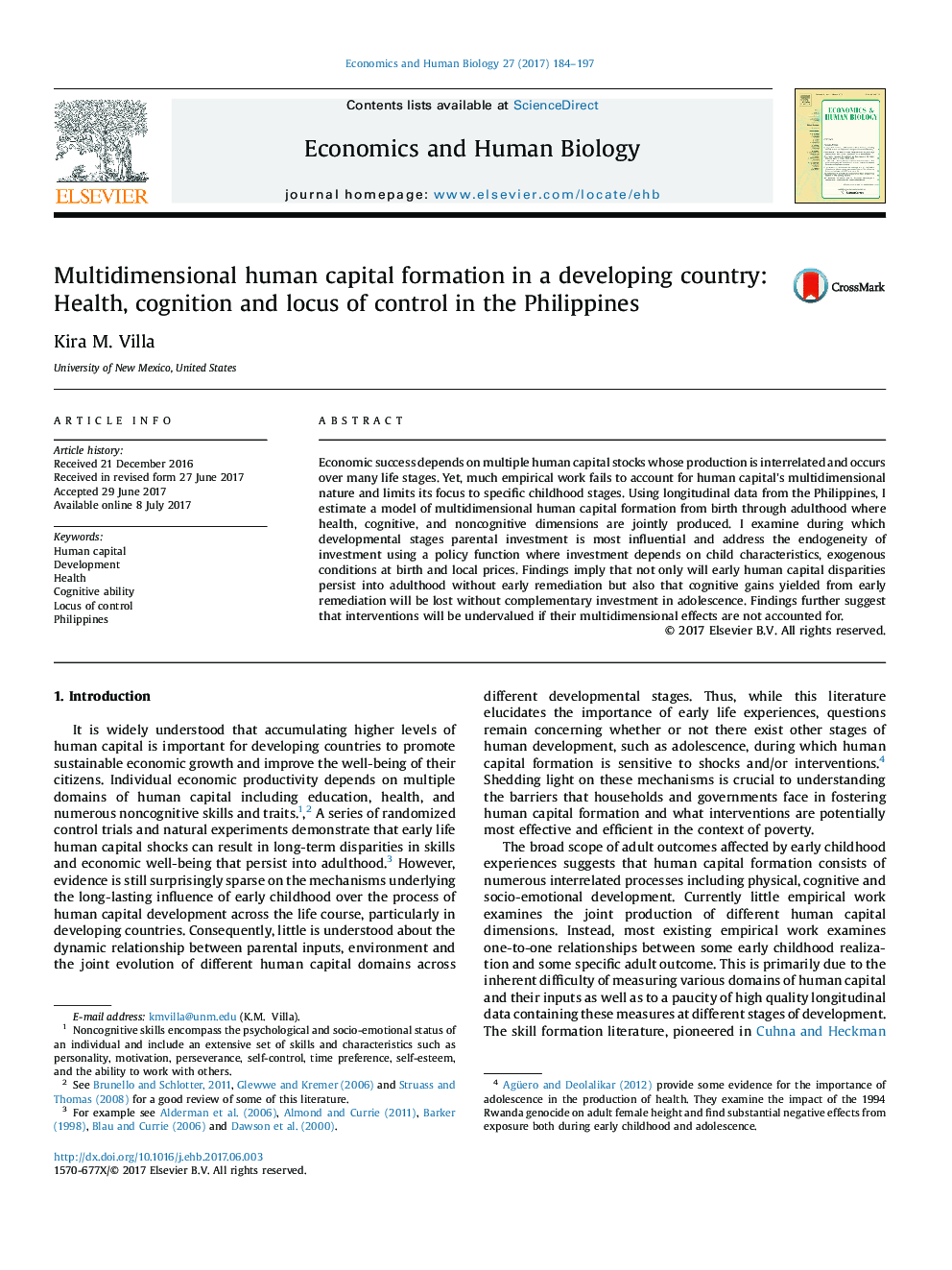| Article ID | Journal | Published Year | Pages | File Type |
|---|---|---|---|---|
| 5056775 | Economics & Human Biology | 2017 | 14 Pages |
â¢Health and cognition exhibit strong self-productivity especially in later childhood.â¢Early life's importance to adult human capital is due to its importance to health.â¢Inputs in adolescence affect adult human capital due to their effect on cognition.â¢Not accounting for multidimensionality results in undervaluing inputs at every age.â¢Not accounting for multidimensionality results in missing influence of adolescence.
Economic success depends on multiple human capital stocks whose production is interrelated and occurs over many life stages. Yet, much empirical work fails to account for human capital's multidimensional nature and limits its focus to specific childhood stages. Using longitudinal data from the Philippines, I estimate a model of multidimensional human capital formation from birth through adulthood where health, cognitive, and noncognitive dimensions are jointly produced. I examine during which developmental stages parental investment is most influential and address the endogeneity of investment using a policy function where investment depends on child characteristics, exogenous conditions at birth and local prices. Findings imply that not only will early human capital disparities persist into adulthood without early remediation but also that cognitive gains yielded from early remediation will be lost without complementary investment in adolescence. Findings further suggest that interventions will be undervalued if their multidimensional effects are not accounted for.
